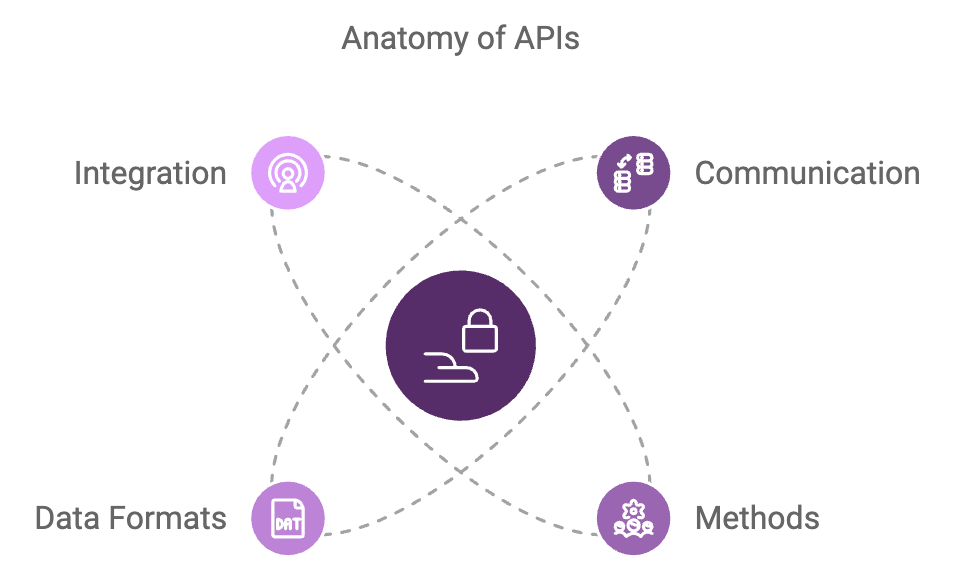Understanding APIs: A Comprehensive Guide
What Are APIs and How Do They Work?

APIs, or Application Programming Interfaces, are essential tools that allow different software applications to communicate with each other. They define the methods and data formats that applications can use to request and exchange information. By serving as intermediaries, APIs enable seamless integration and interaction between disparate systems, making them fundamental to modern software development.
How Do APIs Enhance Daily Operations?
APIs simplify complex processes and allow businesses to automate tasks, streamline workflows, and enhance user experiences. By connecting various services, APIs enable organizations to leverage functionality from existing applications, ultimately leading to improved efficiency and productivity.
API Abstraction: Speed and Agility
API abstraction provides a layer that separates the underlying complexity of software systems from the end-users. This abstraction allows developers to implement changes without affecting other components, leading to faster development cycles and greater agility in responding to market demands.
Types of APIs
- REST APIs: These are widely used for their simplicity and scalability, utilizing standard HTTP methods to facilitate communication.
- GraphQL APIs: Offering more flexibility than REST, GraphQL allows clients to request only the data they need, optimizing performance.
- WebSocket APIs: Designed for real-time communication, these APIs enable continuous data exchange between client and server.
- Web APIs: These interact with web services, allowing access to internet-based functionalities.
The API Economy
The rise of the API economy has transformed how businesses operate, fostering innovation and collaboration. Companies now rely on APIs to extend their services, create new revenue streams, and enhance customer engagement.
Real-World Example of an API in Action
Consider a travel booking platform that aggregates data from various airlines and hotels. By using APIs, the platform can retrieve real-time information about flight availability, pricing, and customer reviews, providing users with a comprehensive and seamless booking experience.
Benefits of Using APIs
Integration and Developer Productivity
APIs facilitate integration between different systems, allowing developers to focus on building core functionalities rather than reinventing the wheel.
Cost Efficiency
By utilizing existing services through APIs, businesses can reduce development costs and time-to-market, enhancing their competitive edge.
Maintenance
With APIs, updates and maintenance can be managed more efficiently. Changes to one service can be made without disrupting others, ensuring smoother operation.
Improved Value Proposition
APIs enable businesses to offer enhanced services and features, improving customer satisfaction and loyalty.
Conclusion
APIs are more than just technical tools; they are catalysts for innovation and efficiency in the digital landscape. Understanding how they work and their benefits can empower businesses to harness their full potential.
Our Services
Backend API Solutions
We deliver robust backend solutions that facilitate seamless interactions between front-end applications and data sources. Our API services lay the groundwork for a responsive and agile business environment, ensuring that your operations run smoothly and efficiently. Whether you’re looking to develop new functionalities or integrate existing services, our team is here to help you navigate the complexities of API development.